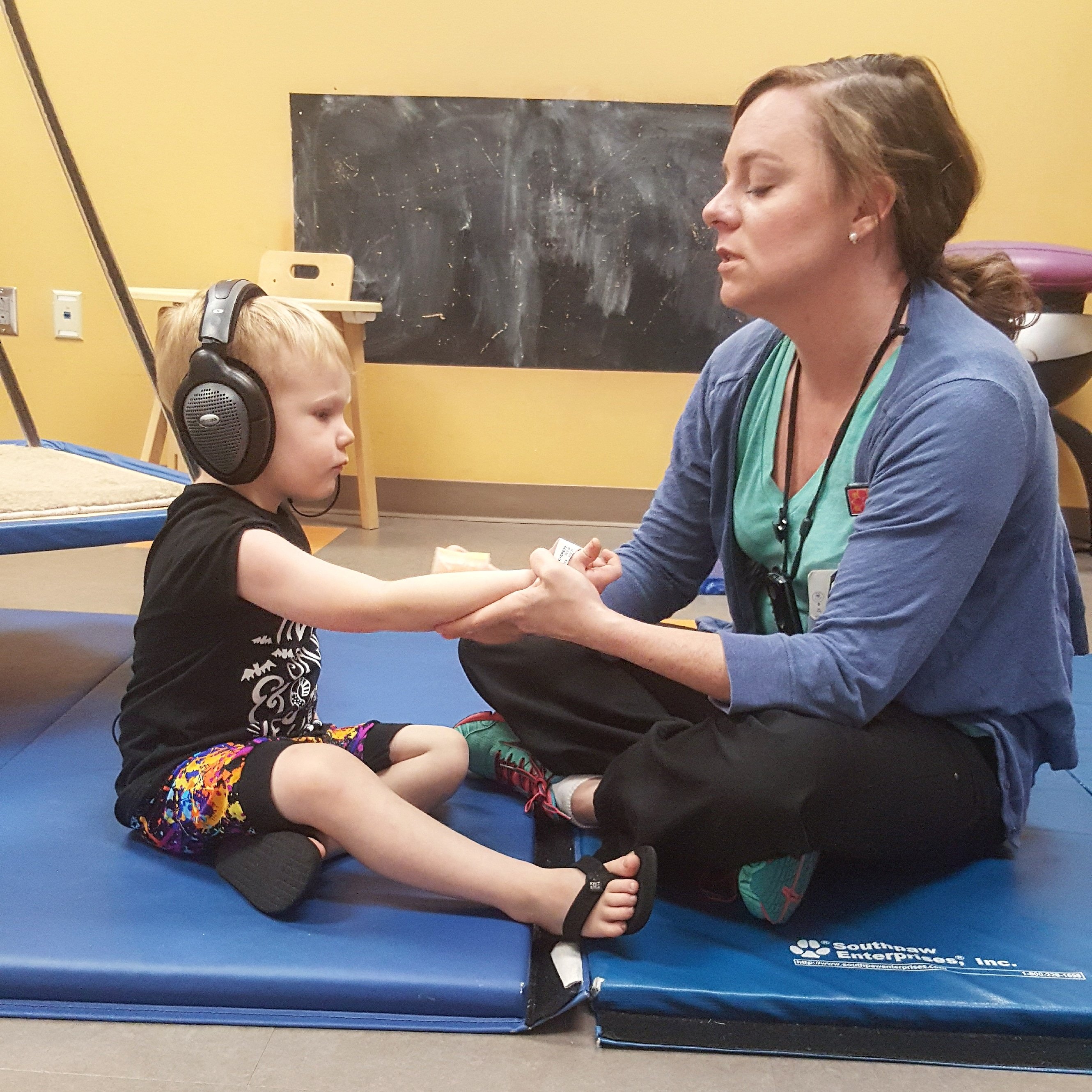
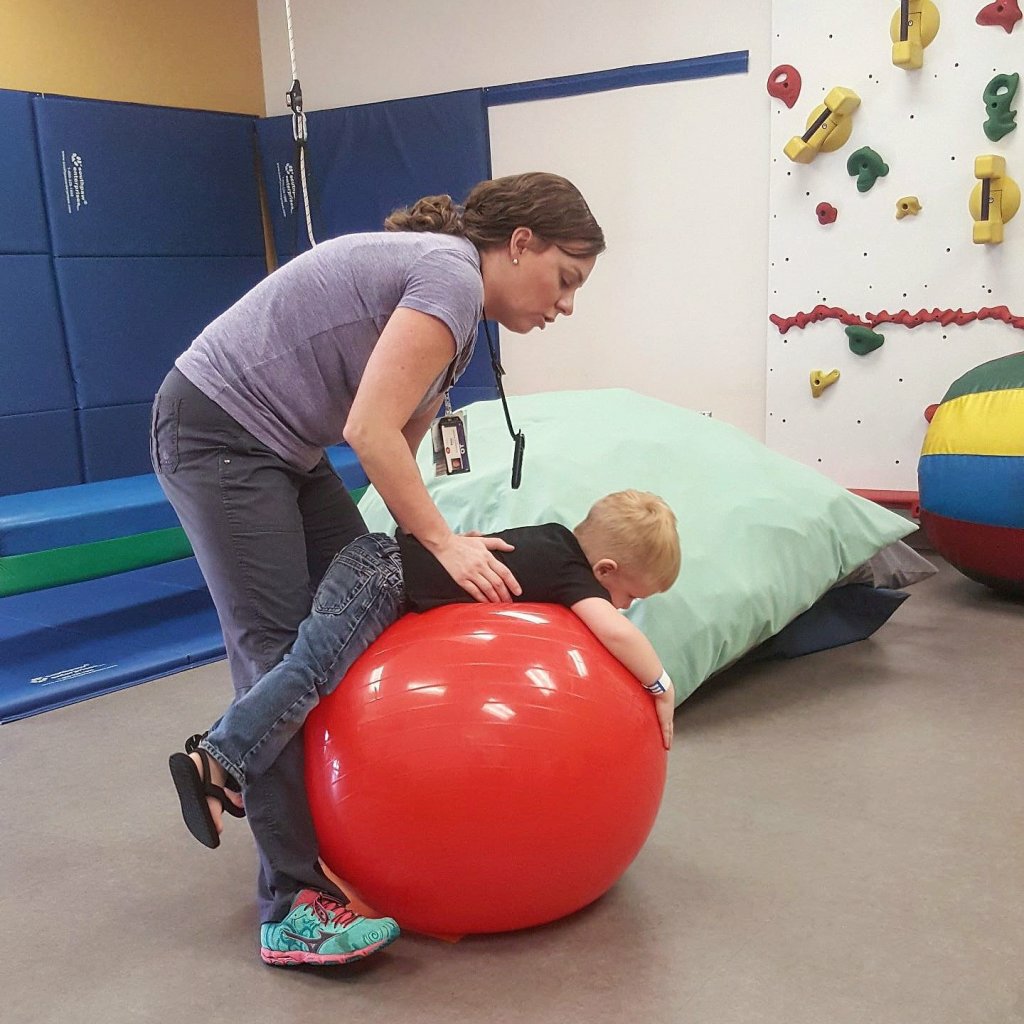
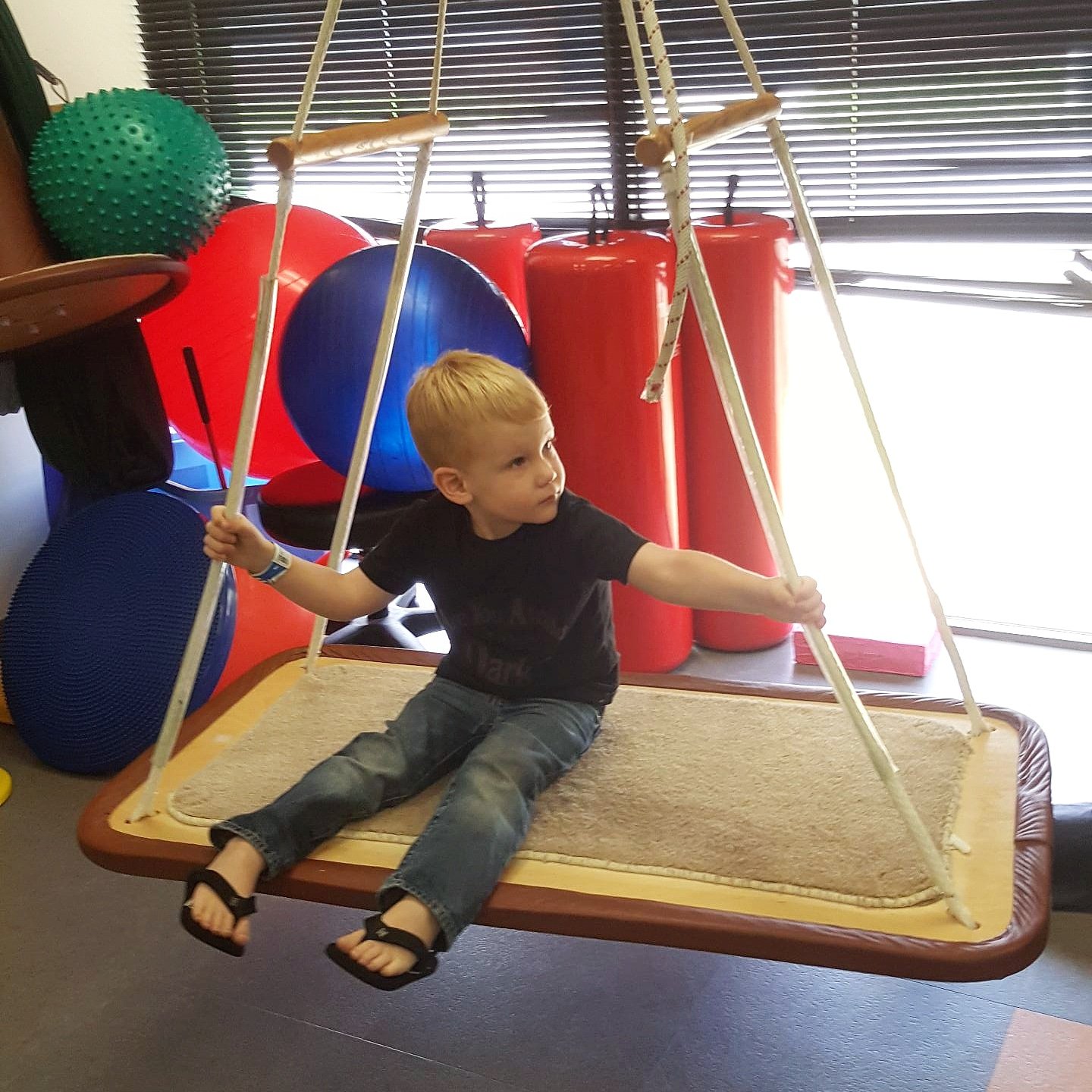
Therapy. Aside from the questions I get about SPD, the other set of questions I get asked the most about are Everett’s therapy.
Most people don’t realize that there is therapy for kids like Everett, so they always ask what exactly it entails and if it will “fix him.”
First and foremost, let’s talk about what “sensory integration therapy” is.
Sensory integration therapy aims to help kids with sensory processing issues by exposing them to sensory stimulation in a structured, repetitive way.
The theory behind it is that over time, the brain will adapt and allow kids to process and react to sensations more efficiently. So no, it will not “fix” Everett, but it will help him integrate better into societal norms.
So I’ve answered the what and why, let’s talk about how therapy works.
A Little Background Info
When Everett first started therapy, he was at a children’s hospital facility. We LOVED it there and our therapist was top notch….however, our insurance kind of sucks and we were paying over $300/session out of pocket until our deductible was met. Our therapist also has a fairly busy schedule and can be tricky to reach.
One day, I was driving through downtown on my way to see my husband. I noticed this cool therapy/yoga studio place a block from my husband’s work and told myself to remember to look it up.
GUESS WHAT?
I promptly forgot the name and even that I was going to look them up. About 4-5 days later, they followed us on Instagram, not even realizing we were local! I promptly contacted their owner and we set up a meeting.
We have been at the new place, Boost Kids, for about a month and I am loving the program she has for him. Every other week we do occupational therapy sessions. On the off weeks, we go in for yoga and feeding therapy. It’s AWESOME!
A Typical Session
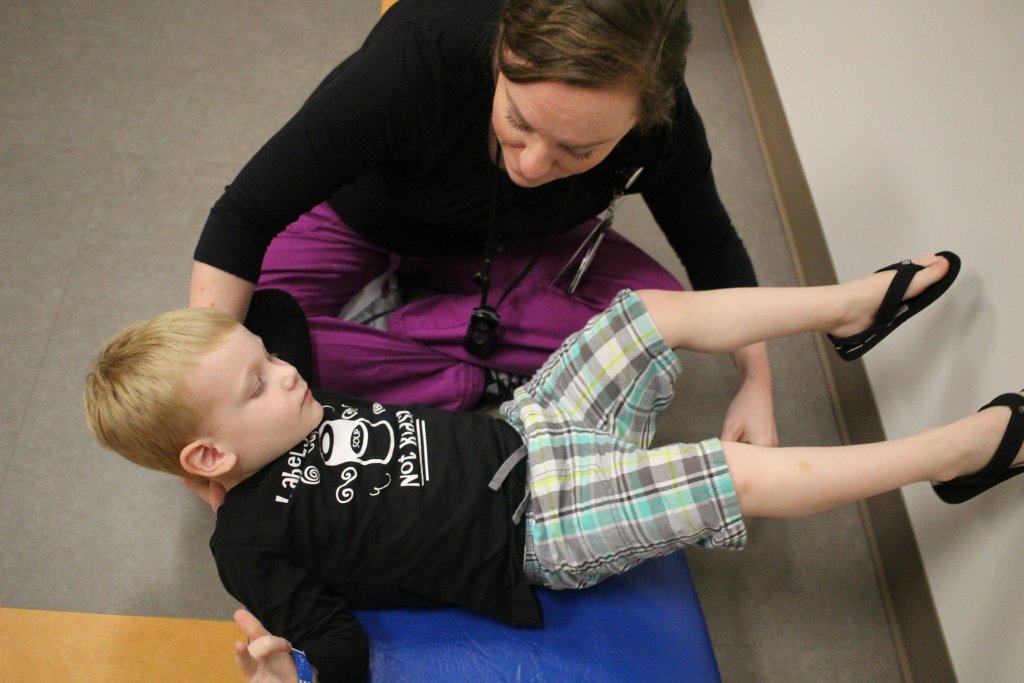
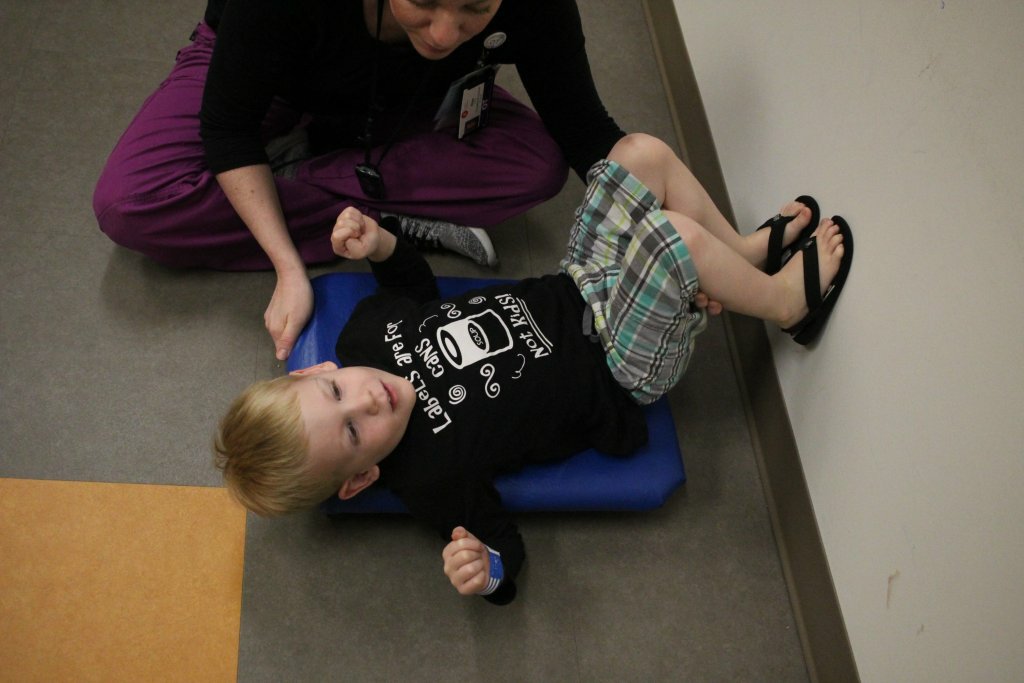
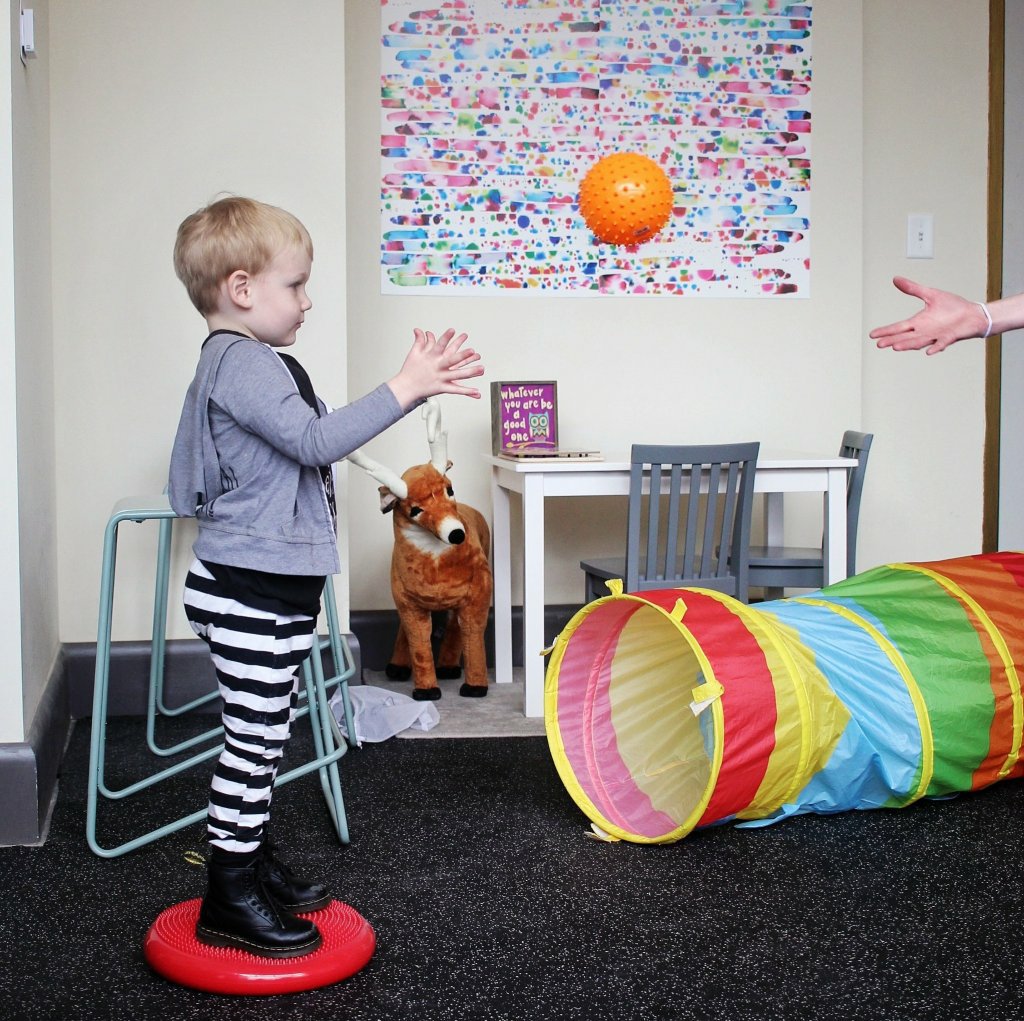
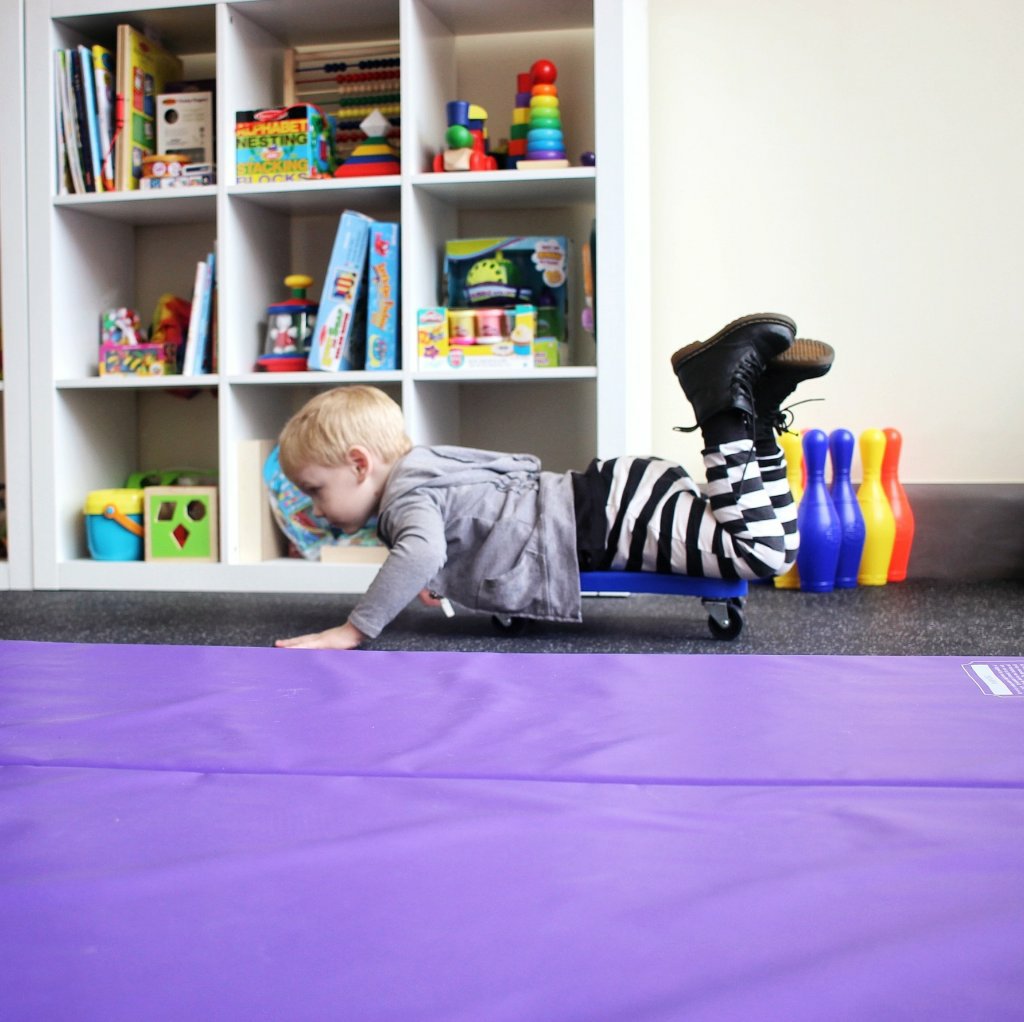
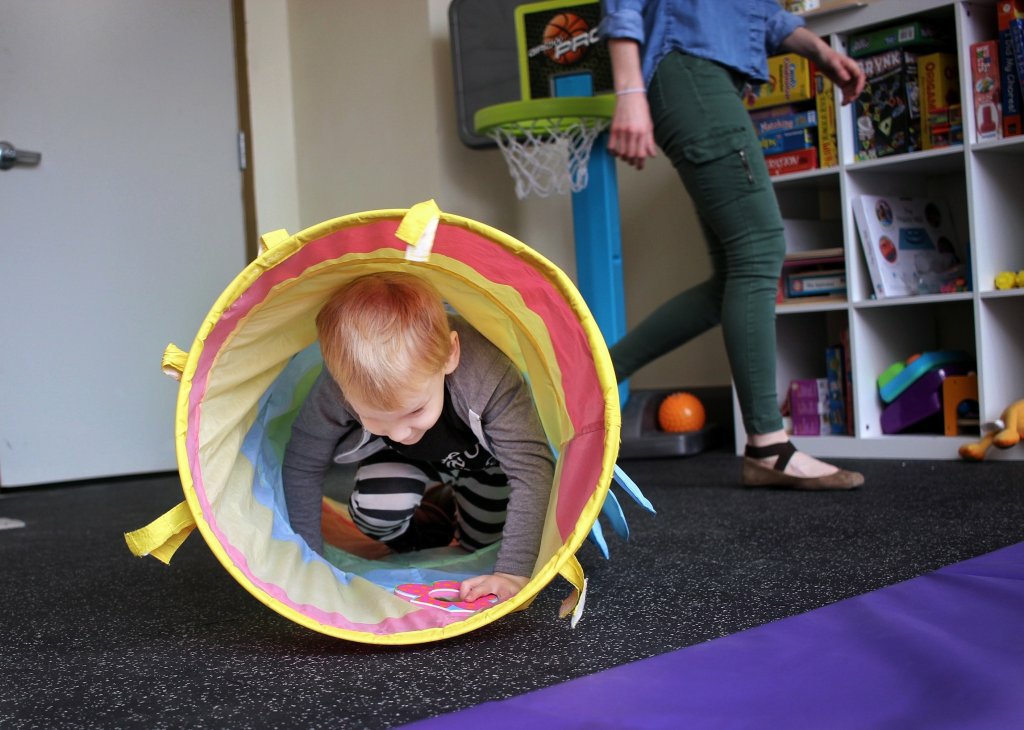
When I say “typical” session, that’s kind of misleading. Every session is something different. The end goal, of course is the same, helping Everett to better adapt to his enviroment, but each week it’s a little different.
His therapist sets up obstacle courses, scissors challenges, fine and gross motor skills activities, and so on.
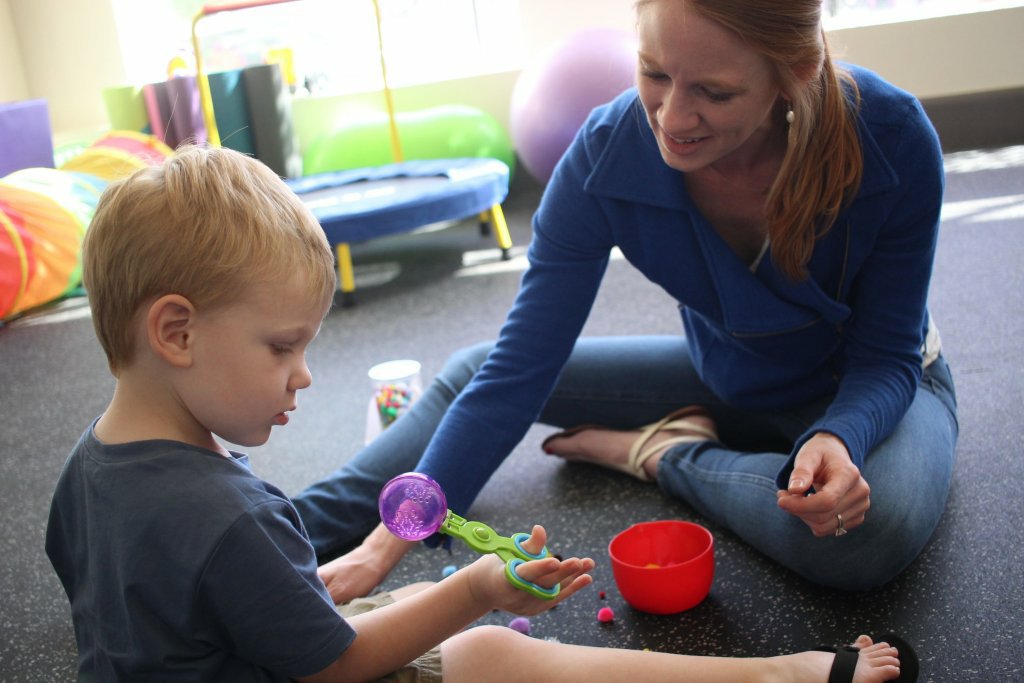
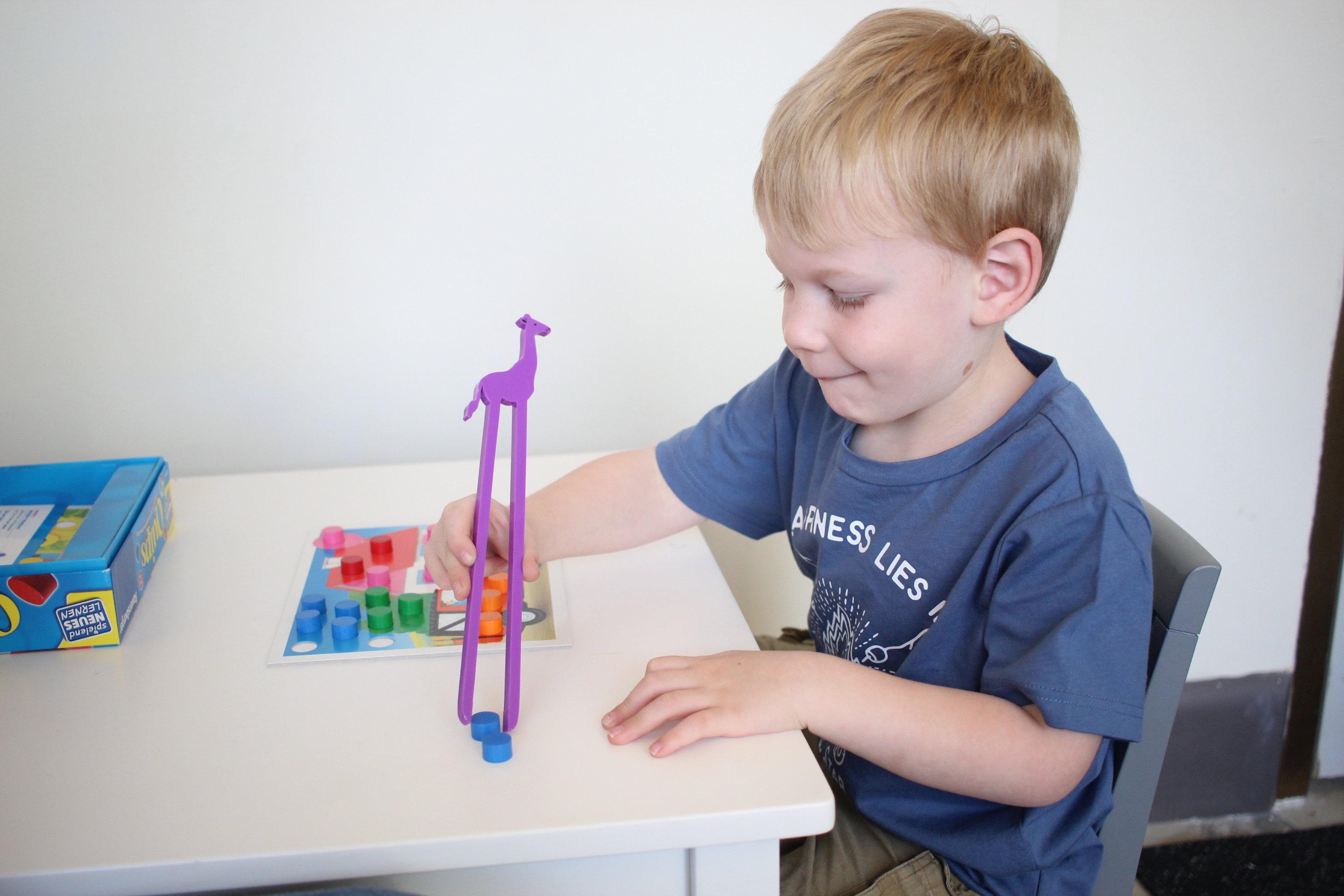
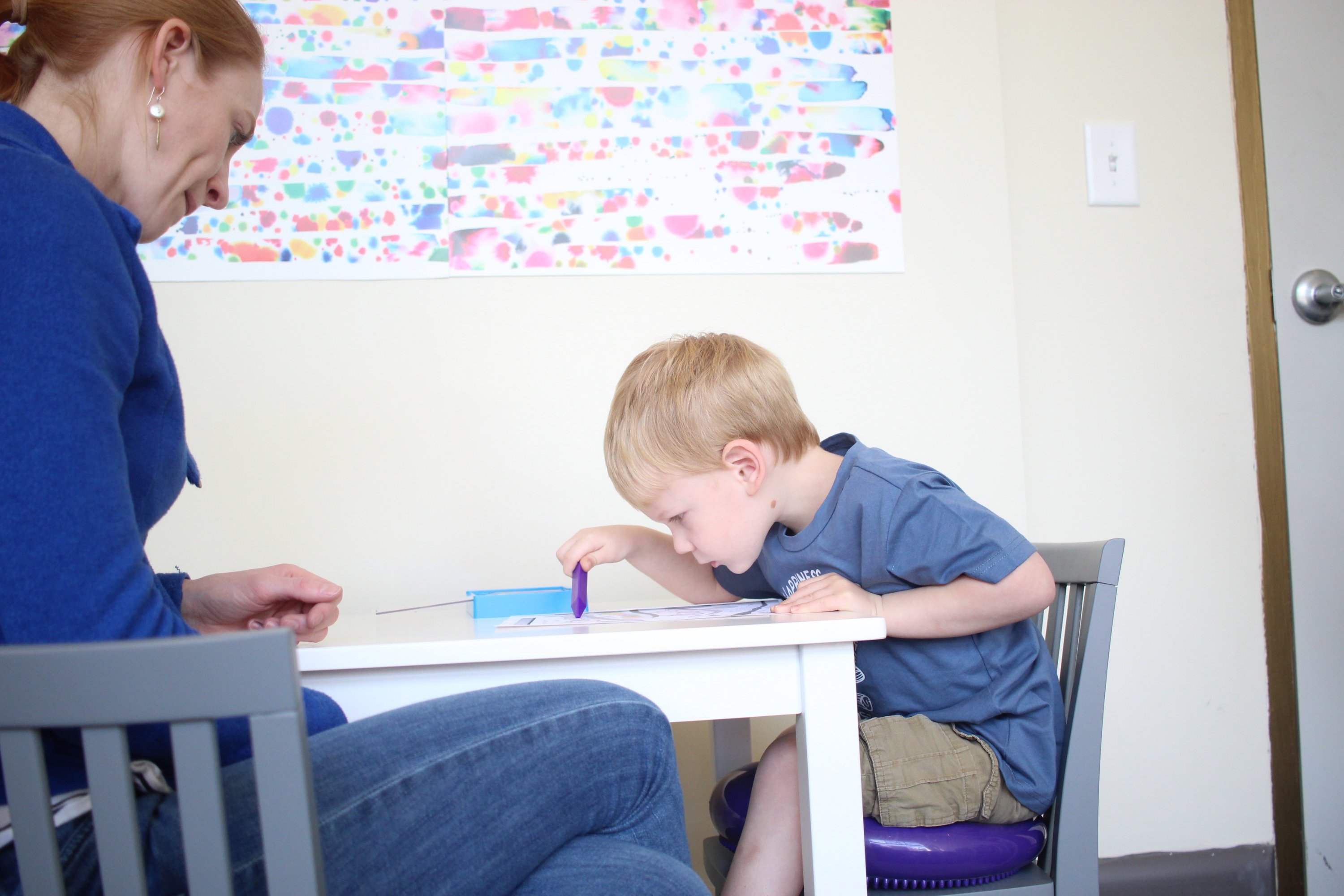
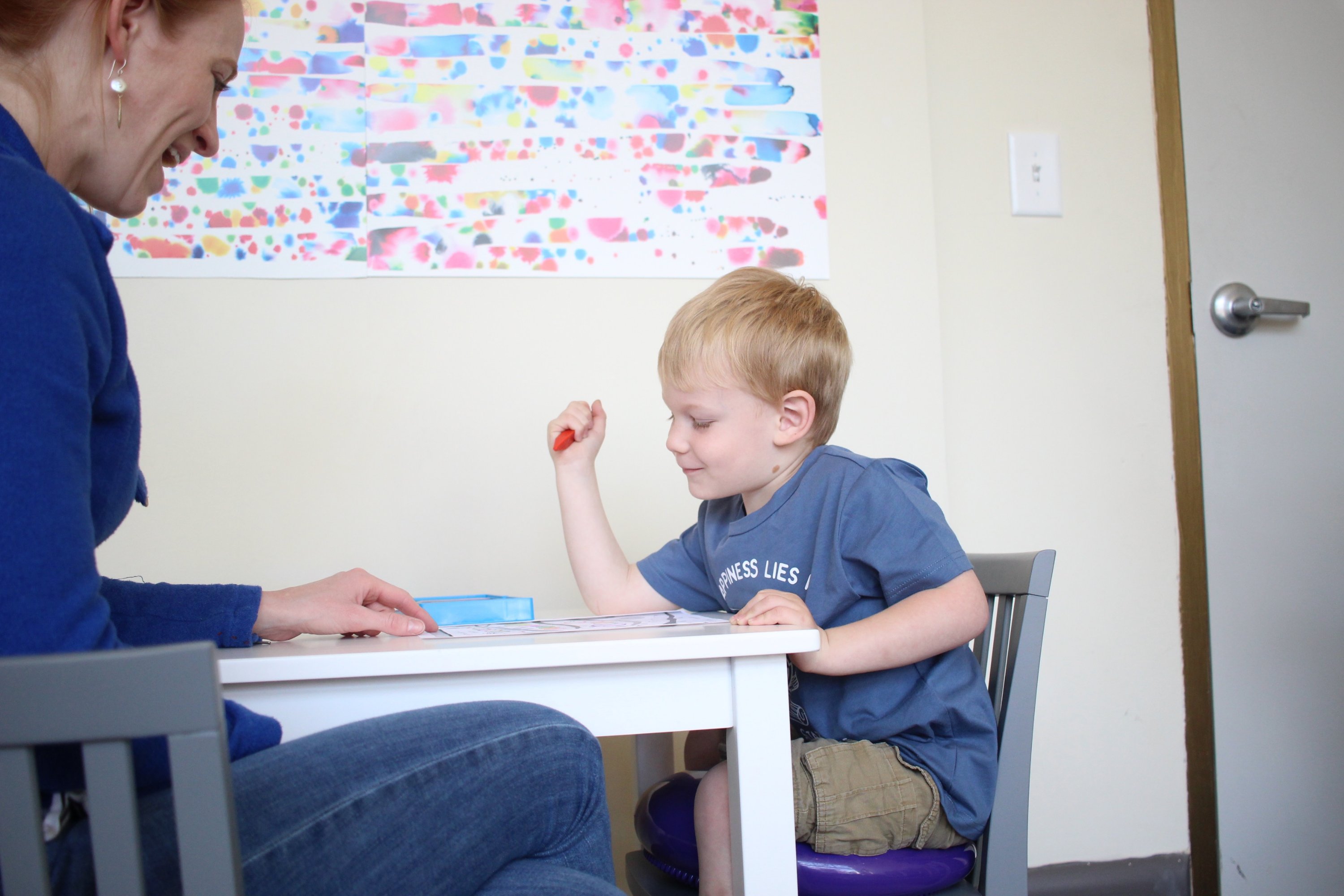
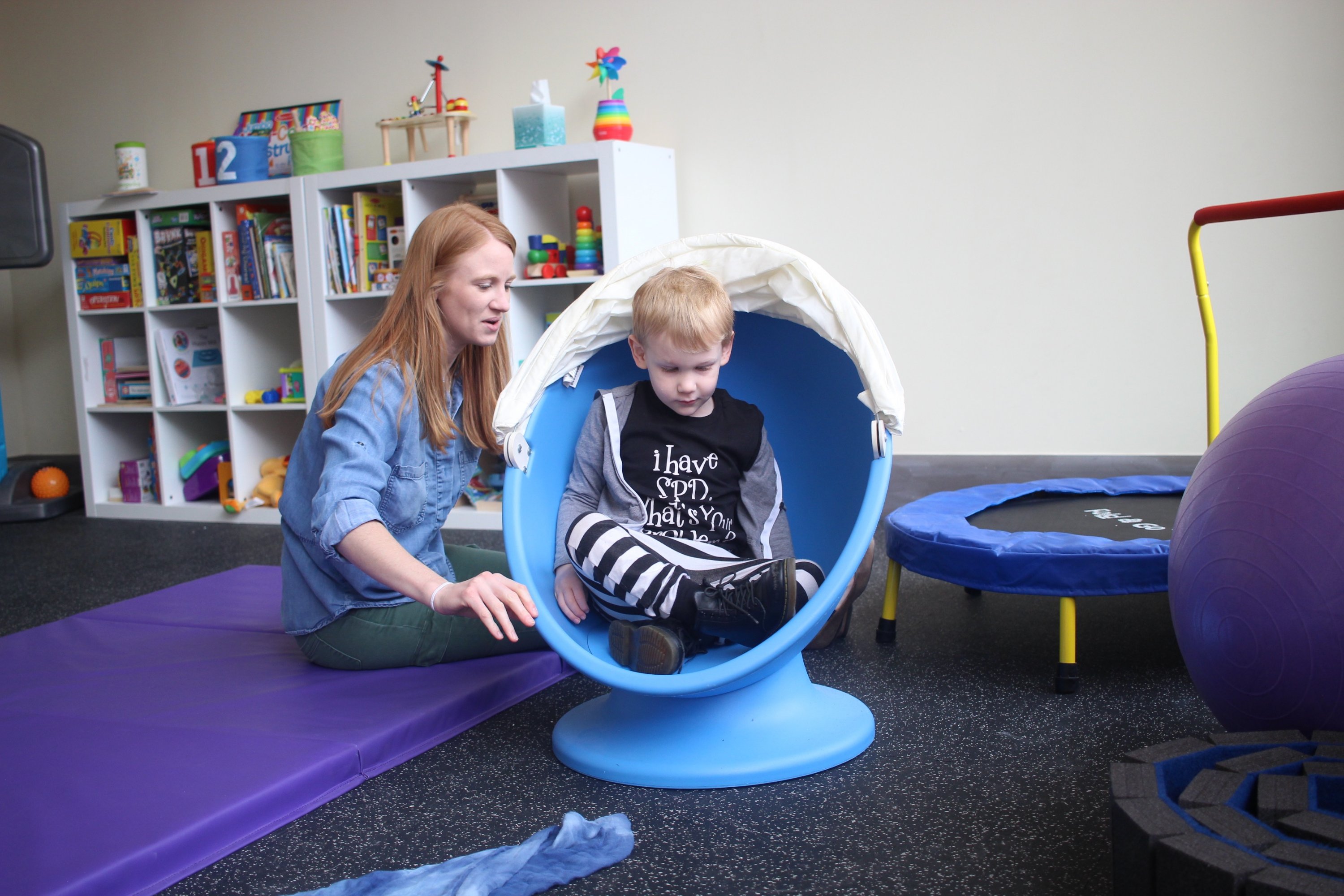
While she is doing his therapy, I’m taking mental notes on how to best apply those techniques at our house.
Thats right, the therapy doesn’t end when we leave her office, we do it all day, every day.
Sensory Diet
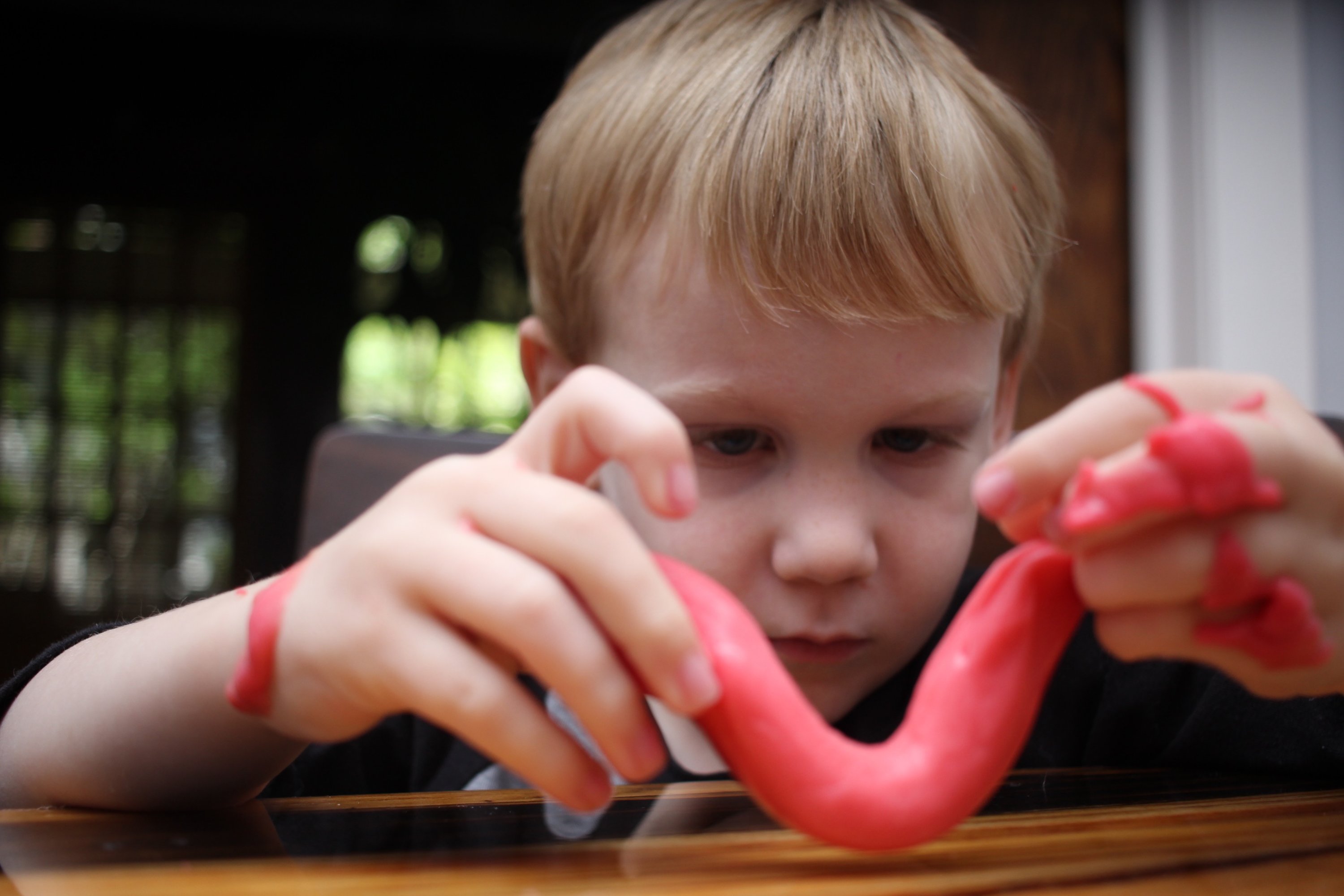
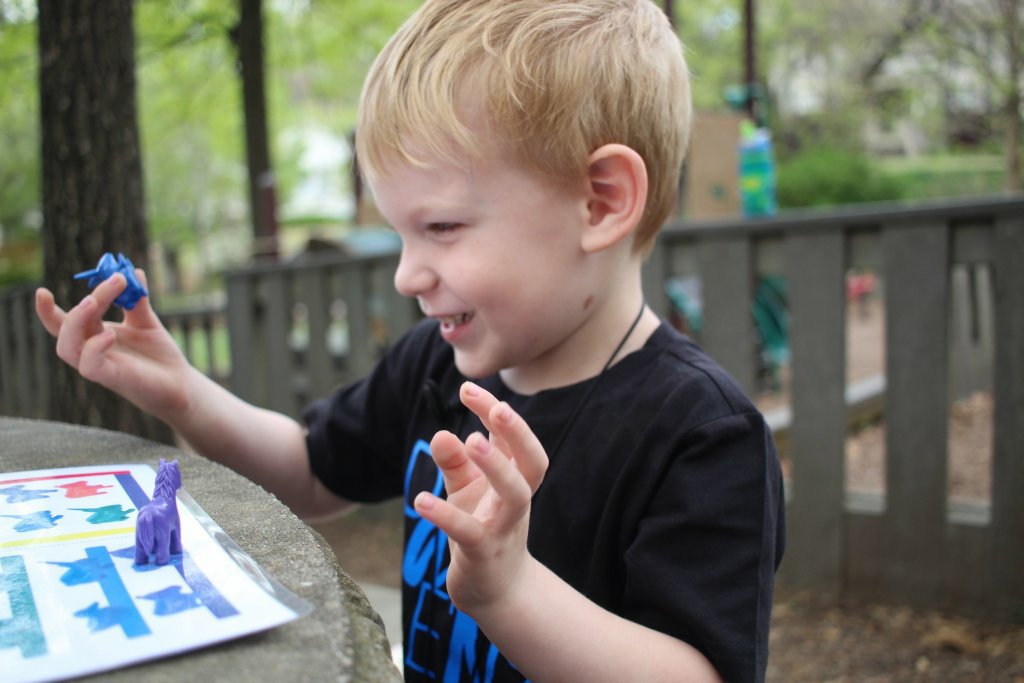
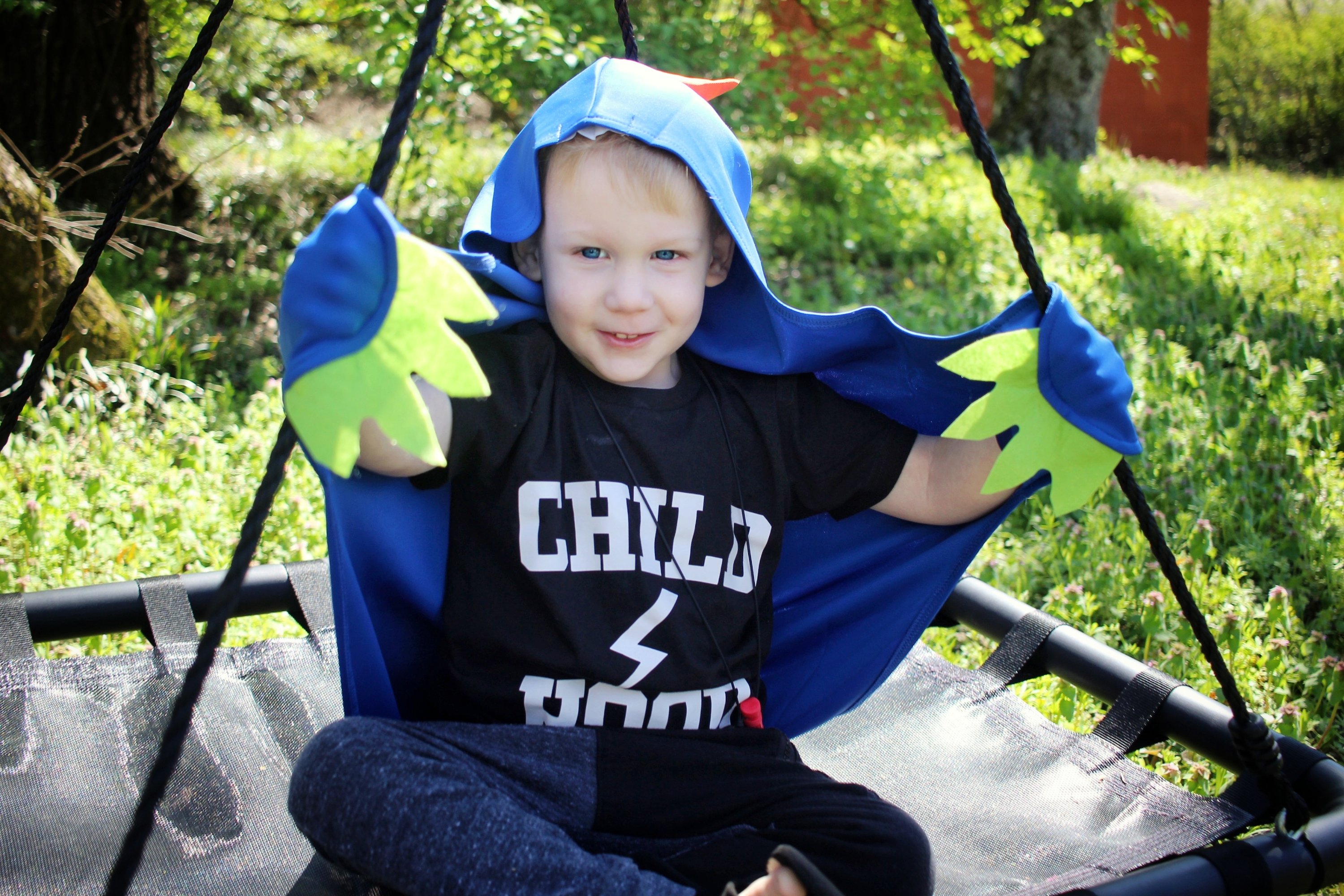
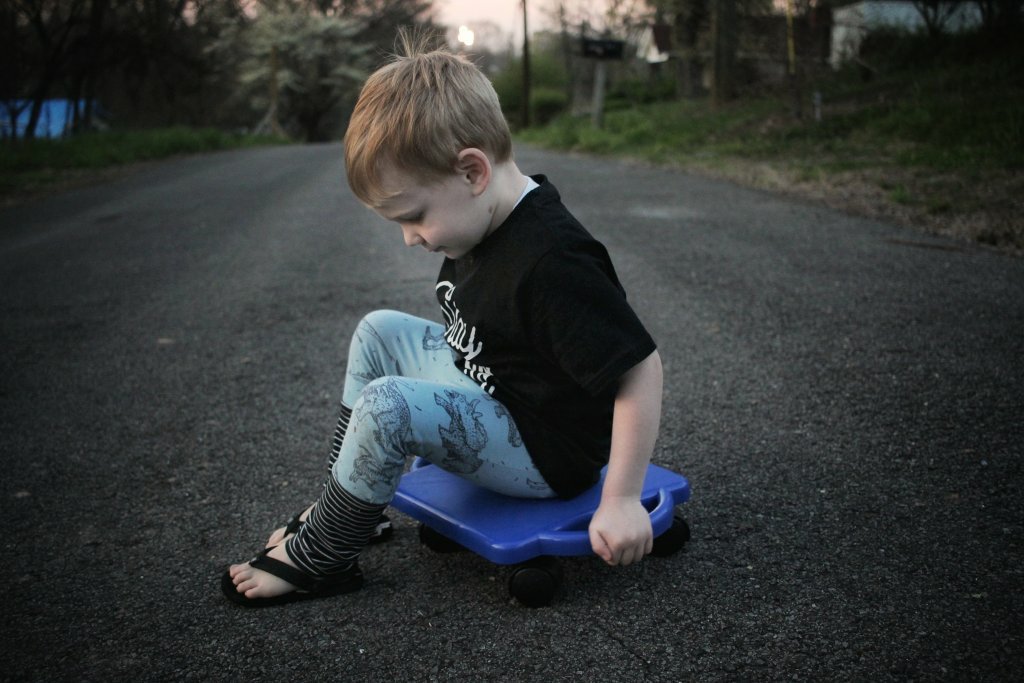
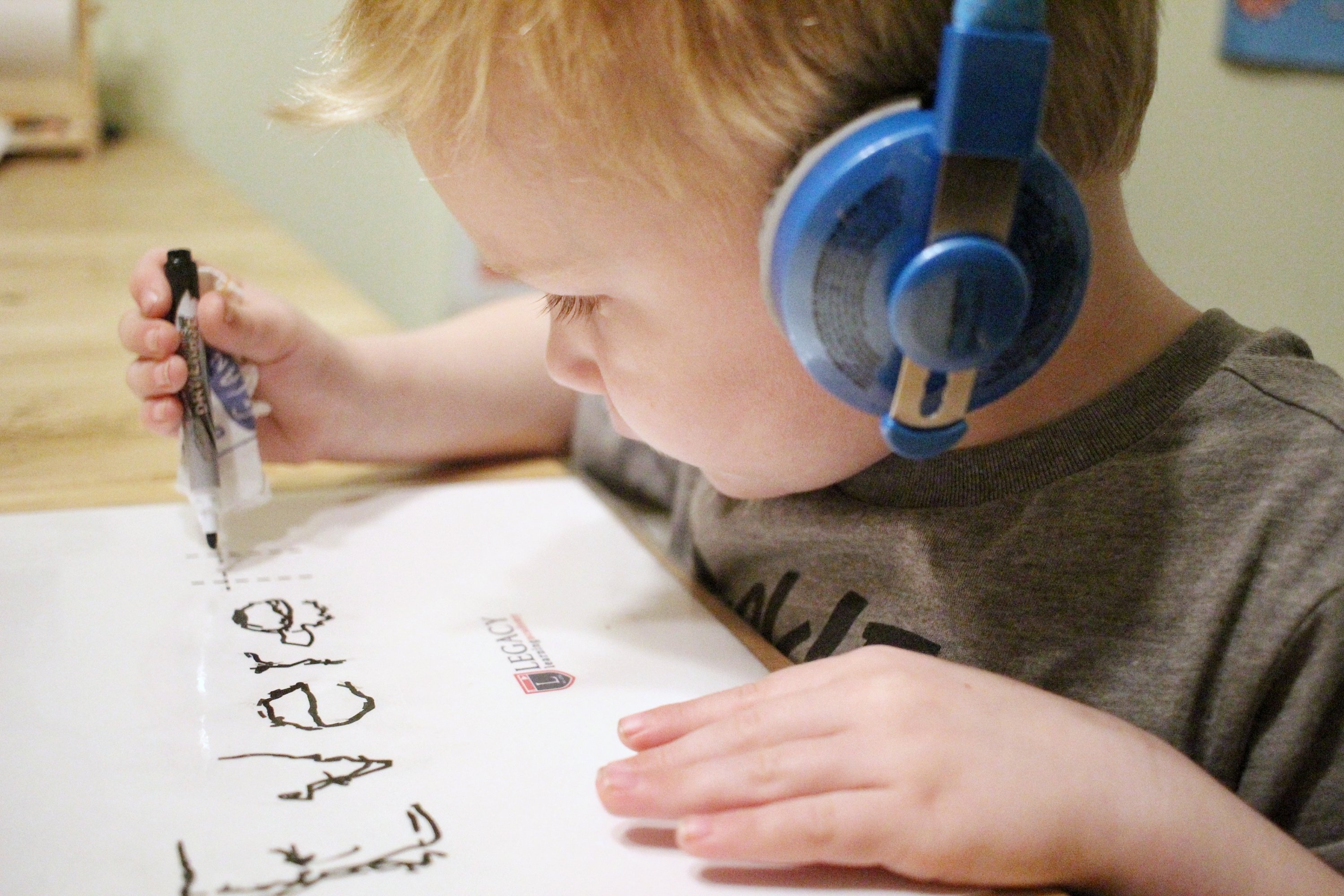
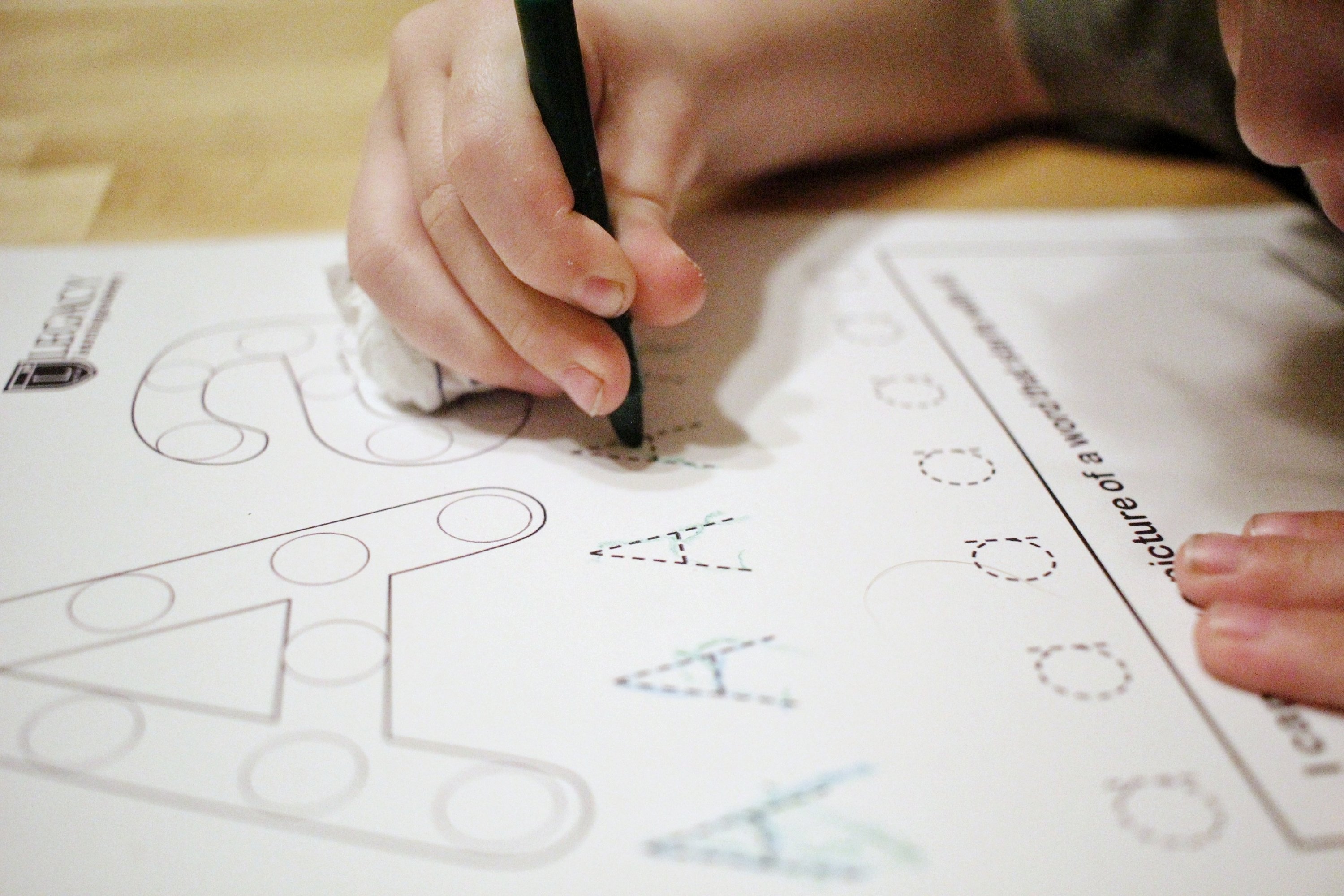
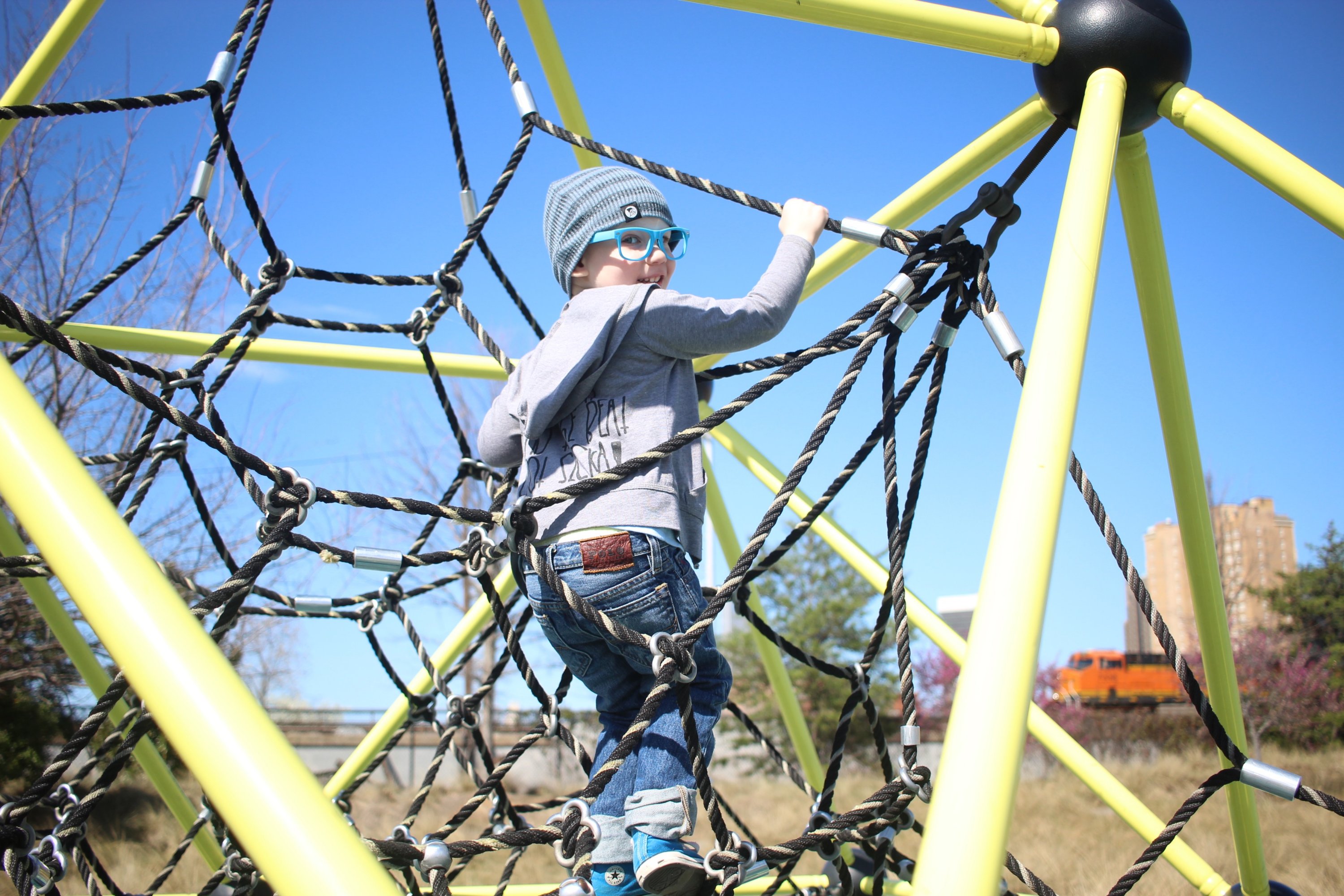
A sensory diet has nothing to do with food. It’s a series of physical activities and accommodations specifically tailored for each child to give them the input they need. Once the correct input is given, the child goes back into a “normal” state.
What does getting into a “normal” state mean? For kids who tend to get overstimulated, their sensory diet can help them come down from an overloaded state and feel calm. Or kids who feel or appear sluggish can get into a “normal” state by doing activities that help them feel more alert.
His first therapist gave me a goal for when we first started. She said that we should aim to create a sensory diet that is constantly adjusting to keep Everett even keel. Depending on what activity we do, the effects of it last anywhere from 30 minutes to about 1.5 hrs.
The effects of gentle brushing for example, last about 30 min. The effects of an hour of playing outside (running/climbing/etc), last about 1.5 hrs. This means I’m constantly counting numbers and making schedules for us. This doesn’t mean we are always on the go, we totally chill out and watch tv for a bit, but he will wear his weighted vest or lap pad to get the needed sensory input.
Am I some crazy amazing super mom who manages his therapy with a breeze? Hardly. I just try my hardest to give him what he needs while also maintaining some semblance of sanity.
Progress
When Everett first started therapy, I didn’t know what to expect. I was still pretty unsure about his diagnosis and wasn’t sure how therapy would help.
What I didn’t realize, was just how many signs I was missing. At 3, he still couldn’t jump with 2 feet off the ground. He walked on his toes (for extra input). He could barely figure out how to climb (poor sensory planning). The list goes on and on.[wpvideo zkOYRf7c]
He is slowly progressing, and that’s great! We celebrate victories, like the first time he jumped with 2 feet off the ground, and when he actually catches a ball.
It’s a bit intimidating, realizing that we are literally at the beginning of his journey, and that there is so much more to come. So I take it one day at a time. I celebrate our small milestones and try not to think about the fact it’s going to take YEARS to climb this mountain. Our climb may be long, but at least we are heading in the right direction.
In the words of Lao Tzu, “The journey of a thousand steps begins with one step.”


Lots of good info here! A couple things you are missing – first and foremost, Everett isn’t broken. He is, and always has been the sweet baby boy you came home with. Like I said, the diagnosis doesn’t change him. Second, it is important to let people know there are earlier signs – like the child not starting to talk when expected. When you, or someone points that out, don’t be scared or defensive, early intervention is a positive. As always, love you!
I’m stemming from my earlier post. For my readers, they know I don’t think Everett is broken and that there were a lot of earlier signs! This post is just about therapy!